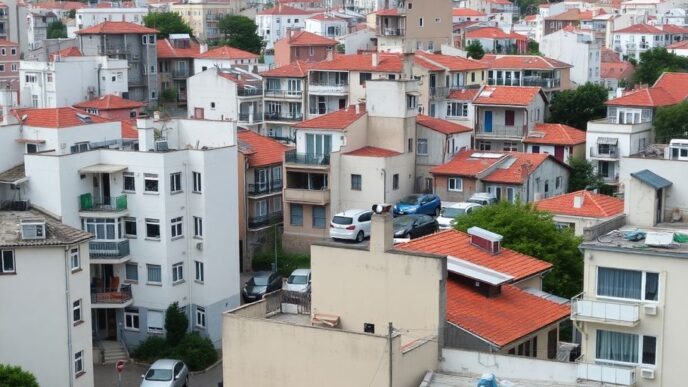Exploring the Portuguese Property Market
Understanding Market Dynamics
The Portuguese property market is a vibrant mix of tradition and modernity. It’s been growing steadily, thanks to a strong demand from both local and international buyers. As of 2025, the market is seeing a surge in interest, particularly in urban areas like Lisbon and Porto. This demand is driven by Portugal’s appealing lifestyle, favorable climate, and relatively affordable property prices compared to other European countries. However, the market isn’t without its challenges. Supply often struggles to keep up with demand, leading to competitive bidding situations and a rise in property prices. Additionally, recent regulatory changes have impacted the short-term rental market, prompting investors to explore medium and long-term rental opportunities instead.
Key Trends for 2025
Looking ahead to 2025, several key trends are shaping the Portuguese real estate landscape. Firstly, there’s a noticeable shift towards sustainable and energy-efficient homes. Buyers are increasingly prioritizing eco-friendly features, which is influencing new developments across the country. Secondly, digital nomads and remote workers continue to flock to Portugal, attracted by its welcoming environment and robust digital infrastructure. This trend is particularly evident in cities like Lisbon and Porto, where co-living spaces and flexible work environments are becoming more common. Lastly, key trends influencing the Algarve real estate market in 2025 include significant economic factors and a variety of investment opportunities, making it a hotspot for property investors.
Investment Opportunities
Portugal offers a wealth of investment opportunities for those looking to enter the property market. The Algarve region, known for its stunning coastline and relaxed lifestyle, remains a popular choice for both holiday homes and rental properties. Meanwhile, the historic city of Porto is gaining traction among investors, thanks to its rich cultural heritage and growing economy. For those seeking hidden gems, the Silver Coast and the autonomous islands of Madeira and the Azores present unique opportunities with their blend of natural beauty and potential for capital appreciation. Despite recent changes to the Golden Visa program, Portugal continues to offer attractive investment options, such as the Golden Visa investment fund pathway, for those looking to make the most of their property investments.
Prime Locations for Buying Property in Portugal
The Allure of Lisbon
Lisbon, the vibrant capital of Portugal, is a hotspot for property buyers. It’s a city that blends traditional charm with modern living. The demand here is high, thanks to its bustling economy and thriving tourism sector. The city offers a mix of historic neighborhoods and contemporary developments. Whether you’re looking for a chic apartment in the heart of the city or a quaint townhouse in one of its charming suburbs, Lisbon has something for everyone. Keep in mind, though, that prices can be steep, especially in prime areas like Chiado and Bairro Alto.
Discovering the Algarve
The Algarve is famous for its stunning coastline and sunny weather. This region is a favorite among expats and retirees, thanks to its laid-back lifestyle and beautiful beaches. Towns like Faro, Lagos, and Albufeira are popular choices, offering a range of properties from beachfront villas to modern apartments. The Algarve is not just about relaxation; it’s also a great spot for investment, with opportunities for both short-term holiday rentals and long-term growth.
Hidden Gems in Northern Portugal
Northern Portugal is often overlooked, but it holds some great opportunities for property buyers. Cities like Porto and Braga are gaining attention for their affordable prices and rich cultural heritage. Porto, with its picturesque riverside and historic architecture, offers a more relaxed pace of life compared to Lisbon. Meanwhile, Braga is known for its youthful energy and vibrant community. Both cities provide a chance to experience authentic Portuguese living while still being close to major amenities.
Navigating the Buying Process in Portugal
Essential Steps for Buyers
Buying property in Portugal can be a dream come true, but it requires some careful planning. Here’s a straightforward guide to help you through it:
- Secure Financing: Before you even start looking at properties, get your finances in order. This means understanding your budget and exploring mortgage options with Portuguese banks. Don’t forget to factor in additional costs like taxes, legal fees, and property registration.
- Find Your Property: With your budget set, dive into the real estate market. Consider what you want from your property—be it a city apartment or a coastal villa. Real estate agents can be invaluable here, offering insights into the best locations and potential rental returns.
- Make an Offer: Once you find a property you love, it’s time to make an offer. Negotiation is key, and having a buyer’s agent on your side can be a real advantage. They’ll help you navigate the process and ensure you’re getting a fair deal.
- Reservation Agreement and CPCV: After your offer is accepted, you’ll sign a Reservation Agreement and a Promissory Contract (CPCV). These documents outline the terms of the purchase and include a deposit. It’s a good idea to have these signed in front of a Notary.
- Sign the Escritura: Finally, the Escritura, or Final Deed, is signed before a Notary, officially transferring ownership to you. This is when you’ll pay any remaining balances and fees, marking the end of the buying process.
Legal Considerations
Buying property in a foreign country can be tricky, so it’s important to know the legal landscape. Here are some things to keep in mind:
- Portuguese Tax Number (NIF): You’ll need a NIF to purchase property in Portugal. It’s a straightforward process, but essential.
- Legal Representation: Consider hiring a lawyer who specializes in Portuguese real estate. They can help with contracts and ensure everything is above board.
- Due Diligence: Make sure all property documents are in order and there are no outstanding debts or legal issues tied to the property.
Working with a Buyer’s Agent
A buyer’s agent can be your best friend in this process. Here’s why:
- Local Expertise: They know the market inside out and can guide you to the best deals.
- Negotiation Skills: They’ll handle negotiations with the seller, aiming to get you the best price.
- Paperwork Assistance: There’s a lot of paperwork involved, and a buyer’s agent can help keep it all straight.
Overall, buying property in Portugal is an exciting journey. With the right preparation and the right team, you’ll be settling into your new home in no time. And while you’re at it, don’t forget to immerse yourself in the local culture—check out local food festivals and markets to truly make Portugal feel like home.
Types of Properties Available in Portugal

Luxury Real Estate Options
If you’re on the hunt for something extravagant, Portugal’s luxury real estate market is booming. Picture sprawling villas with lush gardens, chic penthouses offering sweeping city views, and historic estates that whisper tales of the past. The country’s charm attracts buyers from around the globe, with Lisbon and the Algarve often topping the list. These luxury homes come with a hefty price tag, but they also offer exclusive amenities like private pools, state-of-the-art kitchens, and sometimes even a butler service. For those who can afford it, these properties are not just homes but a statement of opulence.
Affordable Housing Opportunities
On the flip side, Portugal also caters to those seeking more budget-friendly options. Cities like Porto and regions such as the Silver Coast offer a range of affordable homes. Here, you can find charming townhouses that might need a bit of TLC, or modern apartments perfect for first-time buyers. The market for affordable housing is thriving, with many properties priced well below what you’d expect in other Western European countries. These homes are ideal for young families or retirees looking for a peaceful yet vibrant place to call home.
Coastal vs. Inland Properties
When deciding where to buy, consider the lifestyle you want. Coastal properties, especially in the Algarve, are highly sought after. They offer stunning ocean views, easy access to beaches, and a relaxed lifestyle. However, with the beauty of the coast comes higher prices and, in some areas, water consumption restrictions that might affect your day-to-day life. Inland properties, on the other hand, provide a different kind of charm. Think rolling hills, vineyards, and quaint villages where time seems to stand still. These areas often offer more space for your money and a chance to immerse yourself in Portugal’s rich cultural heritage. Whether you choose the coast or the countryside, Portugal’s diverse landscapes ensure there’s something for everyone.
Maximizing Your Investment in Portuguese Property
Investing in Portuguese property can be a smart move, especially when considering rental yields. Portugal’s booming tourism industry, along with its appeal to expatriates and digital nomads, makes it a hotspot for rental properties. Here are some key points to consider:
- Tourist Demand: With Portugal’s popularity as a tourist destination, short-term rentals can be highly lucrative, particularly in cities like Lisbon and Porto.
- Expatriate Appeal: Long-term rentals are also in demand, as many expatriates and remote workers are choosing to settle in Portugal.
- Seasonal Variability: Consider the seasonal demand fluctuations. Coastal areas might see higher demand in summer, whereas urban areas could have more consistent occupancy throughout the year.
When it comes to capital appreciation, Portugal’s real estate market is on an upward trajectory. Some factors contributing to this growth include:
- Economic Stability: Portugal’s steady economic growth, projected at around 1.7% for 2024, provides a stable foundation for property value increases.
- Market Growth: The real estate market is expected to grow by 15% in investment volume in 2024, making it an attractive time to buy.
- Emerging Hotspots: Areas like Porto are seeing increased interest, with projections indicating a 5.8% market growth by 2025.
Choosing between long-term and short-term rentals depends on your investment goals and property location. Here’s a breakdown:
- Long-term Rentals:
- Short-term Rentals:
In conclusion, whether you’re eyeing Portugal’s real estate market for its rental yield potential or capital appreciation, understanding these dynamics will help you make informed investment decisions in 2025.
Lifestyle and Living in Portugal

Cultural and Culinary Delights
Living in Portugal is like stepping into a vibrant tapestry of cultural experiences. The country is renowned for its rich history, evident in its architecture, festivals, and everyday life. From the narrow, cobbled streets of Lisbon to the medieval castles scattered across the countryside, history is everywhere. But it’s not just about the past; Portugal’s present is equally enticing with its bustling arts scene and lively festivals. And let’s not forget about the food. Portuguese cuisine is a delightful journey for your taste buds, with its fresh seafood, hearty stews, and, of course, the famous pastel de nata. It’s a place where sharing a meal is about more than just food; it’s about community and tradition.
Climate and Natural Beauty
Portugal’s climate is one of its biggest draws. With over 300 days of sunshine a year, it’s a paradise for sun-seekers. Summers are warm and dry, perfect for lounging on the beaches of the Algarve or exploring the vineyards of the Douro Valley. Winters are mild, especially in the south, making it a year-round destination. Beyond the weather, Portugal is blessed with stunning natural landscapes. From the rugged cliffs and golden beaches of the coastline to the rolling hills and lush forests inland, there’s no shortage of beauty. The Azores and Madeira, Portugal’s island regions, offer even more breathtaking scenery, with volcanic landscapes and lush gardens.
Community and Expat Life
Portugal is home to a growing expat community, drawn by the country’s welcoming spirit and quality of life. The locals are known for their hospitality, making it easy for newcomers to feel at home. English is widely spoken, especially in urban areas and tourist hotspots, easing the transition for those who don’t speak Portuguese. The cost of living is relatively low compared to other Western European countries, which is a big plus for many expats. However, it’s important to be aware of potential challenges like bureaucracy and finding job opportunities. Despite these hurdles, many find that the benefits of living in Portugal far outweigh the drawbacks, making it an increasingly popular choice for those looking to relocate.
Financial Aspects of Buying Property in Portugal
Understanding Mortgage Options
When you’re eyeing a property in Portugal, understanding mortgage options is crucial. Portuguese banks offer a variety of mortgage products for both residents and non-residents. If you’re a fiscal resident, you might get an LTV (loan-to-value) of up to 90% for your main home. For a holiday home, expect around 80%. Non-residents typically see LTVs between 60% to 70%. It’s all about the lower of the purchase price or the bank’s appraisal.
To get started, you’ll need a Portuguese tax number (NIF) and ideally, a local bank account. Several banks like Millennium BCP, Novo Banco, and Banco Santander Totta offer competitive rates. It’s wise to shop around or even consider a mortgage broker to find the best deal.
Budgeting for Your Purchase
Budgeting is more than just the purchase price. You’ve got taxes, fees, and other costs to consider. Here’s a quick breakdown:
- Property Purchase Tax (IMT): This varies based on property value and use.
- Stamp Duty: Typically around 0.8% of the purchase price.
- Notary and Land Registration Fees: Expect to pay between €500 and €1,000 for notary services, plus a €250 registration fee.
Also, don’t forget about ongoing costs like the Municipal Property Tax (IMI), which you’ll pay annually. Setting aside a cushion for unexpected expenses is always smart.
Tax Implications and Benefits
Buying property in Portugal comes with its own set of tax implications. Initially, you’ll deal with the IMT and Stamp Duty. Annually, there’s the IMI and possibly the AIMI if your property is valued over €600,000.
Portugal’s tax system can be complex, so hiring a tax advisor is often a good move. They can help you navigate the nuances and even uncover tax benefits you might not be aware of.
For those thinking long-term, consider the tax implications of rental income if you plan to lease your property. And remember, while the Golden Visa for property investment is no longer available, other investment pathways still exist.
Navigating the financial aspects of buying property in Portugal can seem daunting, but with the right preparation and professional help, it can be a rewarding journey. Make sure you have all the necessary documents and understand the legal landscape to make the process as smooth as possible. Hiring a qualified lawyer is essential for navigating legalities, ensuring proper documentation, and managing taxes. With professional guidance, purchasing a home in Portugal can be a smooth and secure experience.


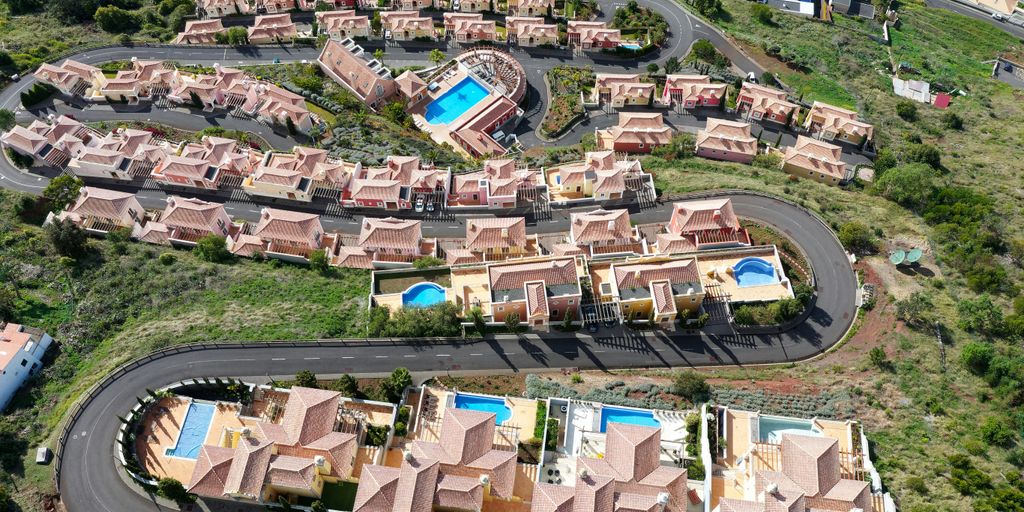


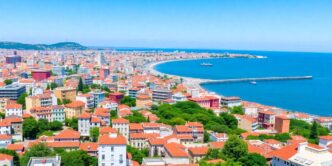
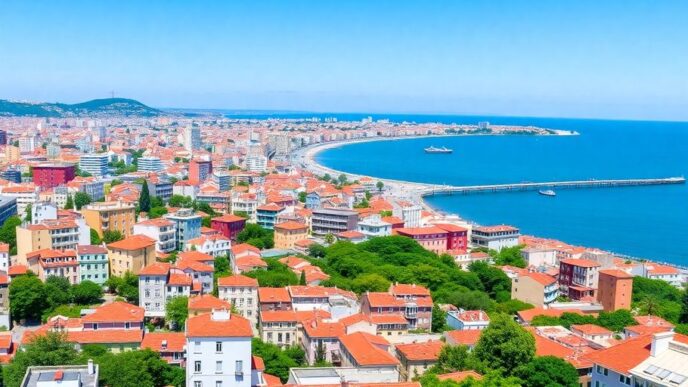

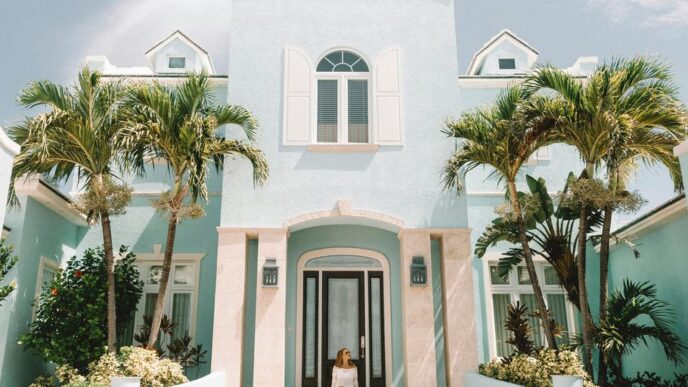
![boats docked near seaside promenade]](https://theportugaldaily.com/wp-content/uploads/2025/01/68dde244thumbnail-332x166.jpeg)
![boats docked near seaside promenade]](https://theportugaldaily.com/wp-content/uploads/2025/01/68dde244thumbnail-688x387.jpeg)

